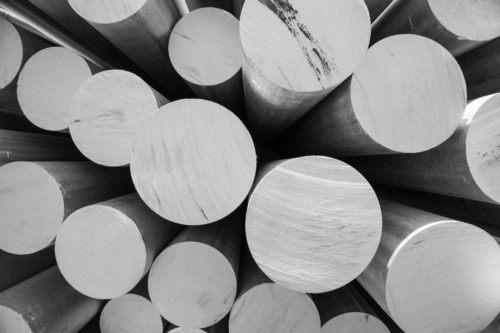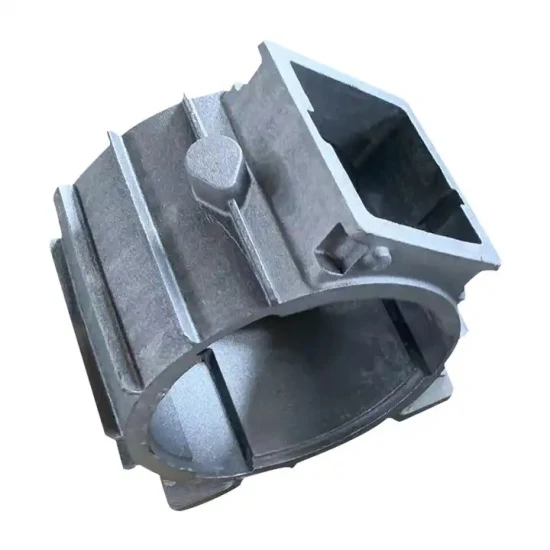The Of Alcast Company
The Of Alcast Company
Blog Article
Not known Details About Alcast Company
Table of ContentsWhat Does Alcast Company Mean?Alcast Company Fundamentals ExplainedUnknown Facts About Alcast CompanyFacts About Alcast Company RevealedThe Alcast Company PDFsThe 9-Minute Rule for Alcast Company
The subtle distinction hinges on the chemical material. Chemical Contrast of Cast Aluminum Alloys Silicon promotes castability by minimizing the alloy's melting temperature and boosting fluidness during spreading. It plays an important function in permitting complex mold and mildews to be filled up properly. Additionally, silicon adds to the alloy's strength and use resistance, making it important in applications where toughness is vital, such as automotive components and engine parts.It additionally enhances the machinability of the alloy, making it much easier to refine into ended up items. By doing this, iron adds to the total workability of aluminum alloys. Copper enhances electric conductivity, making it beneficial in electrical applications. It also improves corrosion resistance and includes to the alloy's total toughness.
Manganese adds to the stamina of aluminum alloys and improves workability (aluminum casting manufacturer). It is generally used in wrought aluminum items like sheets, extrusions, and profiles. The presence of manganese help in the alloy's formability and resistance to breaking during fabrication procedures. Magnesium is a light-weight aspect that supplies strength and impact resistance to aluminum alloys.
How Alcast Company can Save You Time, Stress, and Money.
It enables the manufacturing of light-weight parts with outstanding mechanical homes. Zinc improves the castability of light weight aluminum alloys and aids regulate the solidification process during casting. It enhances the alloy's toughness and hardness. It is typically discovered in applications where detailed shapes and fine details are required, such as ornamental castings and specific vehicle components.

The main thermal conductivity, tensile stamina, yield stamina, and elongation differ. Among the above alloys, A356 has the highest thermal conductivity, and A380 and ADC12 have the lowest.
What Does Alcast Company Do?

In accuracy spreading, 6063 is appropriate for applications where complex geometries and high-grade surface area coatings are critical. Instances consist of telecommunication rooms, where the alloy's superior formability enables smooth and visually pleasing styles while preserving structural stability. In the Lights Solutions industry, precision-cast 6063 parts develop elegant and efficient illumination fixtures that need detailed forms and great thermal efficiency.
It leads to a better surface finish and better corrosion resistance in A360. The A360 displays premium prolongation, making it excellent for complicated and thin-walled parts. In accuracy spreading applications, A360 is well-suited for industries such as Customer link Electronics, Telecommunication, and Power Devices. Its improved fluidness permits intricate, high-precision parts like smartphone housings and interaction gadget housings.
Things about Alcast Company
Its distinct buildings make A360 a beneficial selection for precision spreading in these markets, boosting product longevity and quality. Light weight aluminum alloy 380, or A380, is a widely used spreading alloy with several distinctive features. It provides exceptional castability, making it an ideal option for accuracy spreading. A380 exhibits great fluidness when molten, ensuring detailed and thorough mold and mildews are precisely duplicated.
In precision casting, light weight aluminum 413 beams in the Consumer Electronics and Power Equipment industries. This alloy's exceptional rust resistance makes it an exceptional option for outdoor applications, ensuring resilient, resilient products in the discussed industries.
Some Known Incorrect Statements About Alcast Company
Once you have decided that the light weight aluminum die casting procedure appropriates for your project, a critical next action is choosing on one of the most ideal alloy. The aluminum alloy you select will significantly influence both the spreading process and the properties of the last product. Due to this, you need to make your decision carefully and take an informed technique.
Determining the most suitable aluminum alloy for your application will mean weighing a broad range of attributes. These comparative alloy qualities comply with the North American Die Casting Association's standards, and we have actually divided them right into 2 categories. The first group addresses alloy features that influence the production process. The second covers characteristics affecting the residential or commercial properties of the end product.
Getting The Alcast Company To Work
The alloy you choose for die spreading directly impacts several facets of the spreading procedure, like exactly how easy the alloy is to collaborate with and if it is susceptible to casting flaws. Hot splitting, also referred to as solidification fracturing, is a common die spreading defect for light weight aluminum alloys that can result in internal or surface-level splits or splits.
Certain light weight aluminum alloys are extra vulnerable to warm fracturing than others, and your selection must consider this. An additional common problem discovered in the die spreading of light weight aluminum is die soldering, which is when the cast adheres to the die wall surfaces and makes ejection challenging. It can damage both the actors and the die, so you need to look for alloys with high anti-soldering residential or commercial properties.
Corrosion resistance, which is already a remarkable attribute of aluminum, can vary considerably from alloy to alloy and is a crucial characteristic to think about relying on the environmental conditions your item will certainly be exposed to (aluminum foundry). Use resistance is another building typically sought in aluminum products and can set apart some alloys
Report this page